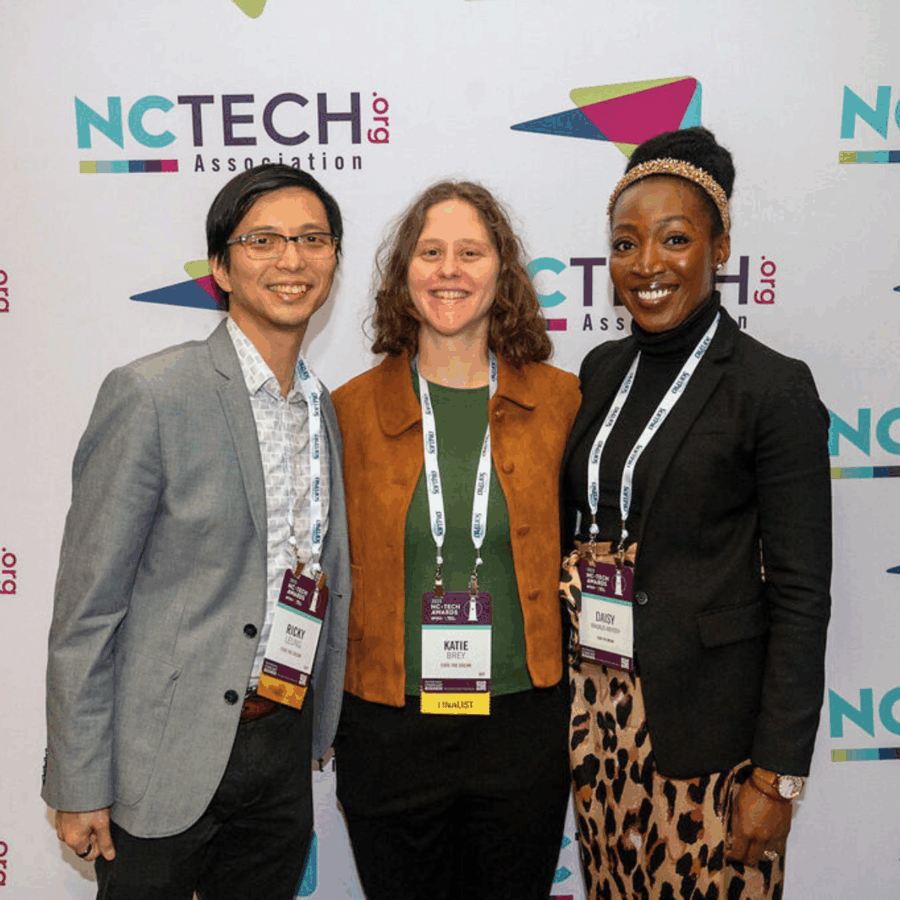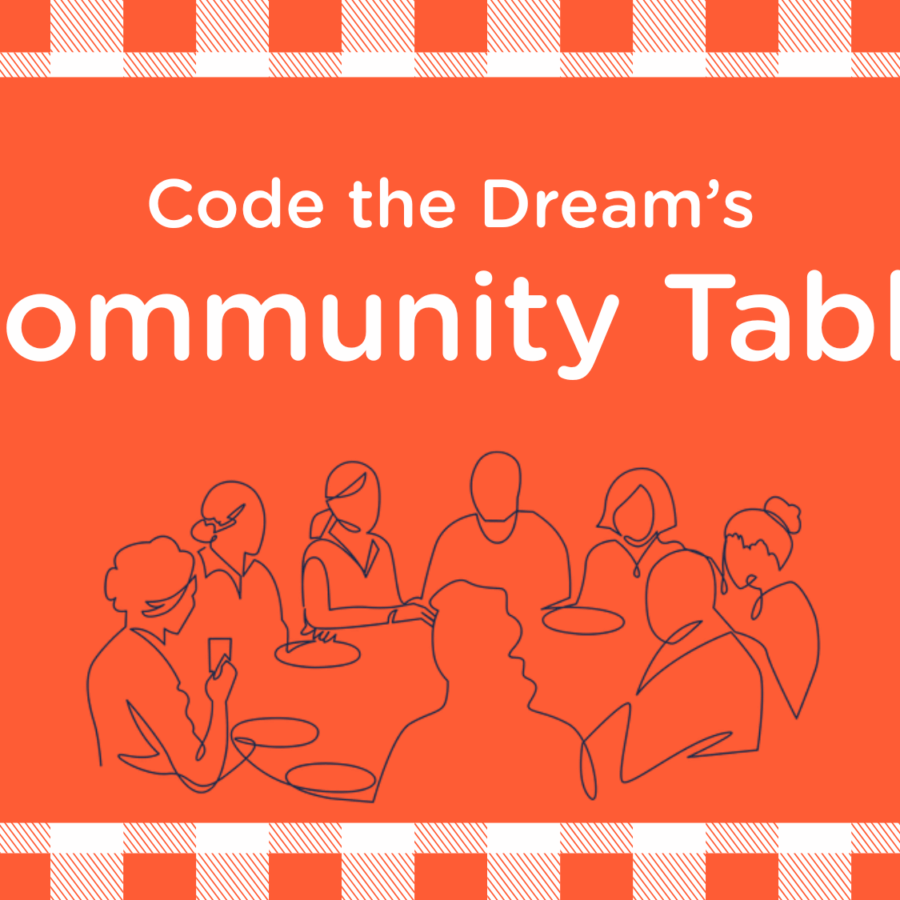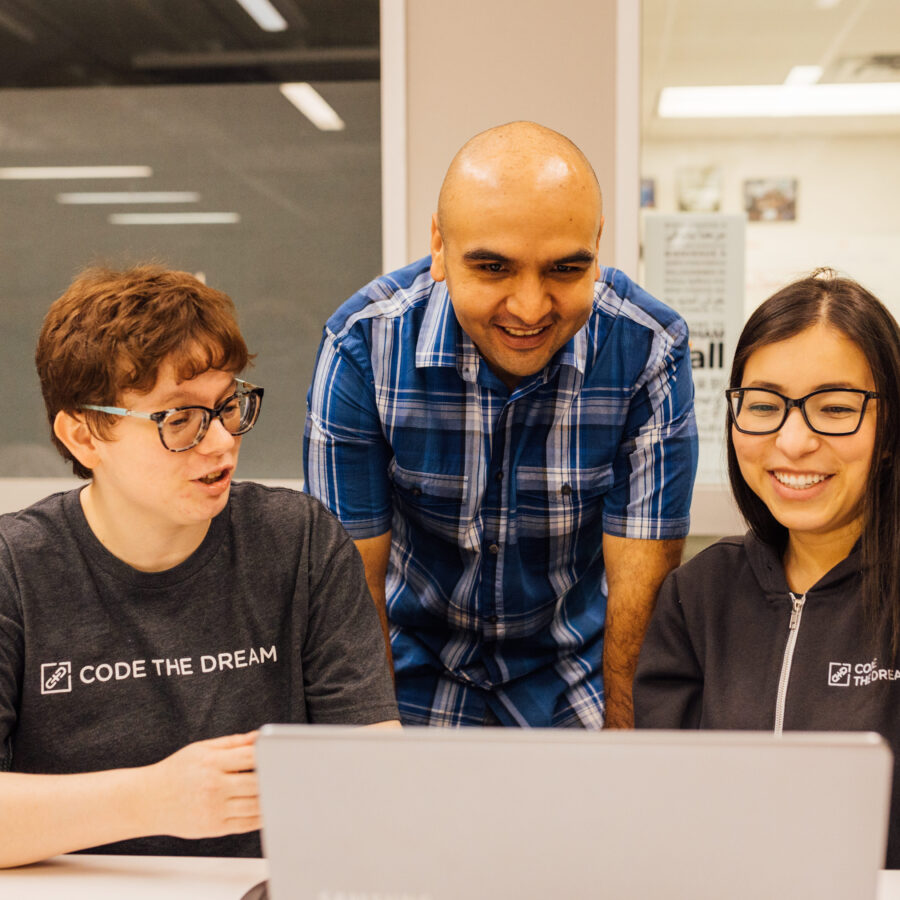The Huffington Post recently ran a story on some of the great initiatives taking off in the Research Triangle, including Code the Dream.
Three Ways Research Triangle Startups Are Tackling America’s Challenges
Adam Klein, Chief Strategist at American Underground
Jim Whitehurst, President and CEO of Red Hat
The startup scene in Raleigh, Durham, and Chapel Hill, North Carolina, isn’t just about business and exits. In what’s known as the Research Triangle – an area that includes all three cities – the entrepreneurial ecosystem has become a laboratory working to address some of America’s great challenges.
Racial and gender inclusion? We’re working on it. A creative AND affordable quality of life? It’s happening. A common cause across generations? Without it, we wouldn’t be here at all. It’s not that the Research Triangle has the answers. But a confluence of assets, people and ideas — and a drive to succeed — has put in place the tools to experiment.
When Steve Case brings his Rise of the Rest tour here on May 5, he’ll find not just startup founders standing in line to pitch their ‘eureka’ moments, but a community eager to share the business and cultural map we’re drawing together. Here’s a look at three key points on the map:
Generations Joined: Much has been written about millennials’ quest to find their footing. In the Research Triangle, many have embraced a regional legacy — but added a new twist. Previous generations founded three world-caliber research universities here — Duke, NC State, and the University of North Carolina at Chapel Hill — as well as the vast Research Triangle Park, home to pharma and tech giants from GSK to Red Hat and IBM.
To this tradition, 20 and 30 somethings contributed a crucial new layer: startup hubs and incubators, designed in part to retain the talent coming out of our universities and transform research into companies, jobs, opportunity. A symbiotic relationship soon took flight. For example, the American Underground — a Google for Entrepreneurs tech hub and home to back-to-back Google Demo Day winners — features the support of all three universities and the governing body of the Research Triangle Park, which recently added its own entrepreneurial hub.
Here, generations frequently link arms, with quantifiable results. At the American Tobacco Campus tech hub — developed through a partnership of longtime community pillars — six young companies have made exits within the last 24 months amounting to more than $1 billion in stock and cash.
Inclusive: America’s demographics are fundamentally changing. By the year 2043, the current minority population is forecast to be the majority population. In the Triangle, we see a major opportunity building. We’re working aggressively to build an inclusive ecosystem from the start, rather than repair deficiencies after it’s built.
A program launched by Uniting NC, Code the Dream, is teaching young members of our immigrant community the basics of Ruby on Rails to begin a pathway into some of the Triangle’s high-paying developer jobs. Last month, the American Underground partnered with San Francisco-based CODE2040 and Google for Entrepreneurs to bring aboard an Entrepreneur in Residence, Talib Graves-Manns of RainbowMe, to support minority led startups while building his own business.
At the front end, the team at the Durham Innovation District (which hosts Duke University researchers in downtown labs) recently donated $250,000 to a program identifying and training a diverse assortment of budding science and tech leaders before they hit high school. Further in the process, Soar Triangle and e51 provide mentoring, access to capital networks, and more, with the goal of scaling more and better-funded female led teams in the Triangle.
By cultivating diverse leaders and technology companies, these businesses will have a fundamental advantage in serving a more diverse economy and world. That means new jobs and opportunities, which feed into our next big issue.
Quality of Life: Increasingly, Americans long for both urban amenities and the opportunity for more people to share in them. The cost of living in the Triangle is much lower than in other tech metros. This natural advantage has become a key starting point for building a thriving and inclusive community that encourages creativity and enterprise.
New housing is popping up in city centers here at a healthy variety of price points. In downtown Raleigh, entrepreneurs can live in ThinkHouse, a 24/7 dorm for startups, and mix with people from every corner of the city at SPARKcon, an annual, grassroots arts and innovation festival. In downtown Durham, you can live on a modest budget in the historic and revitalized Southside neighborhood and bike to three major tech hubs and a minor league baseball stadium.
All over, bike lanes and greenways are unfurling, often driven by the organized advocacy of young entrepreneurs. And while our public conversation about mass transit continues to be noisy, that’s only because it includes a symphony of voices.
Do we have all the answers? Not even close. Are we asking the right questions? We think so. The Triangle is purposefully working to deal with the hard stuff we know and that which may come. Hard stuff is what entrepreneurialism is all about. It’s about diligently working to create something better, just as the Rise of the Rest tour is doing.





